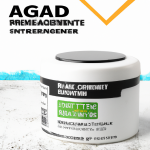-
Table of Contents
“Precision Meets Creativity: Elevate Your Resin Art with the Best Mixing Cups, Sticks & Measuring Tools!”
When it comes to resin work, having the right tools is essential for achieving the best results. Best mixing cups, sticks, and measuring tools are crucial for accurately combining resin and hardener, ensuring a smooth and bubble-free finish. High-quality mixing cups allow for precise measurements and easy pouring, while sturdy mixing sticks facilitate thorough blending of materials. Additionally, reliable measuring tools help maintain the correct ratios, preventing common pitfalls in resin projects. Investing in these essential tools not only enhances the quality of your work but also streamlines the process, making your resin crafting experience more enjoyable and efficient.
Best Mixing Cups for Resin: Top Picks and Features
When embarking on resin work, the importance of selecting the right mixing cups cannot be overstated. The ideal mixing cup not only facilitates the accurate blending of resin and hardener but also enhances the overall efficiency of the crafting process. Among the various options available, certain features stand out, making specific mixing cups particularly well-suited for resin applications.
One of the top picks in the realm of mixing cups is the graduated plastic cup. These cups are designed with clear measurement markings, allowing for precise measurement of resin and hardener. This accuracy is crucial, as even slight deviations in the mixing ratio can lead to suboptimal curing and compromised results. Furthermore, the lightweight nature of plastic cups makes them easy to handle, while their disposable quality ensures a hassle-free cleanup after each project.
In addition to graduated plastic cups, silicone mixing cups have gained popularity among resin enthusiasts. The flexibility of silicone allows for easy pouring and cleaning, as resin does not adhere to the material. This feature is particularly advantageous when working with intricate designs, as it minimizes waste and ensures that every drop of resin can be utilized. Moreover, silicone cups often come in various sizes, catering to different project scales, from small jewelry pieces to larger art installations.
Another noteworthy option is the mixing cup with a spout. These cups are designed to facilitate controlled pouring, which is essential when working with detailed molds or when layering resin. The spout allows for precision, reducing the risk of spills and ensuring that the resin is directed exactly where it is needed. This feature is especially beneficial for artists who require meticulous application to achieve their desired effects.
Transitioning from the cups themselves, it is also important to consider the mixing sticks that accompany them. Wooden stir sticks are a traditional choice, providing a sturdy option for thorough mixing. However, some artisans prefer silicone stir sticks, which offer the same non-stick benefits as silicone cups. These sticks can be easily cleaned and reused, making them an environmentally friendly option. Additionally, silicone stir sticks often come with a flat edge, which can be advantageous for scraping the sides of the mixing cup to ensure that all materials are fully incorporated.
Moreover, the use of measuring tools such as syringes or graduated pipettes can further enhance the accuracy of resin mixing. These tools allow for precise measurement of small quantities, which is particularly useful when working with pigments or additives that require careful dosing. By incorporating these measuring tools into the resin work process, artisans can achieve consistent results and maintain the integrity of their projects.
In conclusion, the selection of mixing cups, sticks, and measuring tools plays a pivotal role in the success of resin work. Graduated plastic cups, silicone mixing cups, and cups with spouts each offer unique advantages that cater to different aspects of the crafting process. Coupled with appropriate mixing sticks and measuring tools, these items create a comprehensive toolkit that empowers artists to execute their visions with precision and ease. As resin work continues to grow in popularity, investing in high-quality mixing tools will undoubtedly enhance the overall crafting experience, leading to more successful and satisfying outcomes.
Essential Mixing Sticks for Resin Projects: A Comprehensive Guide
When embarking on resin projects, the importance of using the right mixing sticks cannot be overstated. These essential tools play a crucial role in ensuring that the resin and hardener are thoroughly combined, which is vital for achieving the desired results. The selection of mixing sticks can significantly influence the quality of the final product, making it imperative to understand the various options available.
One of the most popular choices among resin artists is wooden mixing sticks. These sticks are often readily available and can be found in craft stores or online. Their natural material allows for easy mixing without the risk of chemical reactions that might occur with plastic alternatives. Additionally, wooden sticks are sturdy and can handle the viscosity of resin mixtures effectively. However, it is important to note that wooden sticks can absorb some of the resin, which may lead to waste if not used judiciously. Therefore, it is advisable to use them for smaller projects or when precise measurements are not critical.
In contrast, silicone mixing sticks have gained popularity due to their reusable nature and ease of cleaning. Unlike wooden sticks, silicone does not absorb resin, allowing for more efficient use of materials. These sticks are flexible, which can be advantageous when scraping the sides of mixing containers to ensure that all components are incorporated. Furthermore, silicone mixing sticks are available in various shapes and sizes, catering to different project needs. Their durability and resistance to chemical reactions make them a preferred choice for many resin artists, especially for larger or more intricate projects.
Another option worth considering is plastic mixing sticks. These are often lightweight and inexpensive, making them an attractive choice for those who are just starting with resin work. Plastic sticks are typically designed for single-use, which can be a drawback for environmentally conscious artists. However, their affordability allows for easy disposal after use, eliminating the need for cleaning. It is essential to choose high-quality plastic sticks that can withstand the mixing process without bending or breaking, as inferior options may lead to frustration during the project.
In addition to the material of the mixing sticks, the design also plays a significant role in their effectiveness. Some mixing sticks come with measurement markings, which can be particularly useful for ensuring accurate ratios of resin and hardener. This feature can help prevent common mistakes that arise from improper mixing ratios, ultimately leading to better results. Moreover, some sticks are designed with a wider end, allowing for more efficient mixing of larger quantities of resin.
As you explore the various mixing stick options, it is also beneficial to consider the overall mixing process. Using a combination of different types of sticks can enhance your efficiency and effectiveness. For instance, you might use a wooden stick for initial mixing and then switch to a silicone stick for final blending and scraping. This approach can help ensure that all components are thoroughly combined, reducing the likelihood of issues such as incomplete curing or uneven texture.
In conclusion, selecting the right mixing sticks is a fundamental aspect of successful resin work. Whether you opt for wooden, silicone, or plastic options, understanding their unique characteristics will enable you to make informed choices that enhance your projects. By considering factors such as material, design, and the overall mixing process, you can ensure that your resin creations achieve the highest quality and aesthetic appeal. Ultimately, investing time in choosing the best mixing sticks will pay off in the form of beautifully crafted resin pieces that reflect your artistic vision.
Accurate Measuring Tools for Resin: Ensuring Perfect Ratios Every Time
Accurate measuring tools are essential for achieving perfect ratios in resin work, as the success of any resin project hinges on the precise combination of its components. When working with epoxy resin, the two primary components—resin and hardener—must be mixed in exact proportions to ensure optimal curing and performance. Even slight deviations from the recommended ratios can lead to issues such as incomplete curing, sticky surfaces, or compromised durability. Therefore, investing in high-quality measuring tools is not just advisable; it is imperative for anyone serious about resin crafting.
One of the most effective tools for measuring resin and hardener is a set of graduated mixing cups. These cups typically feature clear markings that allow for easy reading of measurements, ensuring that users can accurately gauge the required amounts. Many mixing cups are designed with a spout for easy pouring, which minimizes spills and waste. Additionally, some cups are made from materials that resist chemical reactions with resin, further enhancing their utility. When selecting mixing cups, it is beneficial to choose those that come in various sizes, as this versatility allows for both small and large projects without the need for multiple tools.
In conjunction with mixing cups, measuring sticks or paddles are equally important for achieving a thorough blend of resin and hardener. These tools are often made from materials that are resistant to the sticky nature of resin, making them easy to clean and reuse. A good measuring stick should be long enough to reach the bottom of the mixing cup, ensuring that all components are adequately combined. Furthermore, some sticks come with built-in measurement markings, which can be particularly useful for smaller batches where precision is crucial. By using a dedicated mixing stick, artisans can avoid the contamination that might occur if they were to use household utensils.
Another valuable tool in the resin crafter’s arsenal is a digital scale. While graduated cups and sticks provide a visual method for measuring, a digital scale offers the most precise measurement possible. This is especially important for projects that require exact ratios, as many resin formulations specify measurements in weight rather than volume. A digital scale allows users to measure both components accurately, ensuring that the resin cures properly. When selecting a scale, it is advisable to choose one that can measure in both grams and ounces, as this flexibility accommodates various resin brands and formulations.
In addition to these primary tools, it is also beneficial to have a set of disposable pipettes or syringes on hand. These tools can be used for measuring smaller quantities of additives, such as colorants or glitter, which can enhance the aesthetic appeal of the finished product. By using pipettes or syringes, crafters can achieve precise measurements without the risk of contamination or waste.
Ultimately, the importance of accurate measuring tools in resin work cannot be overstated. By utilizing high-quality mixing cups, measuring sticks, digital scales, and additional measuring tools, artisans can ensure that they achieve the perfect ratios every time. This attention to detail not only enhances the quality of the finished product but also contributes to a more enjoyable and successful crafting experience. As resin work continues to grow in popularity, having the right tools at one’s disposal will undoubtedly set the foundation for creativity and innovation in this versatile medium.
Q&A
1. **What are the best mixing cups for resin work?**
The best mixing cups for resin work are clear plastic cups with measurement markings, such as those from brands like Solo or Artistry. They allow for easy mixing and visibility of the resin.
2. **What type of mixing sticks are recommended for resin?**
Wooden stir sticks or silicone mixing sticks are recommended for resin work. Wooden sticks are cost-effective and disposable, while silicone sticks are reusable and easy to clean.
3. **What measuring tools are ideal for resin projects?**
Graduated measuring cups or digital scales are ideal for resin projects. Graduated cups provide accurate volume measurements, while digital scales offer precise weight measurements for resin and hardener.When selecting the best mixing cups, sticks, and measuring tools for resin work, it’s essential to prioritize materials that are resistant to chemical reactions, such as silicone or plastic. Clear mixing cups with measurement markings allow for precise mixing ratios, while sturdy mixing sticks ensure thorough blending of resin and hardener. Additionally, tools with easy-to-clean surfaces help maintain a tidy workspace. Overall, investing in high-quality mixing tools enhances the efficiency and quality of resin projects, leading to better results and a more enjoyable crafting experience.



